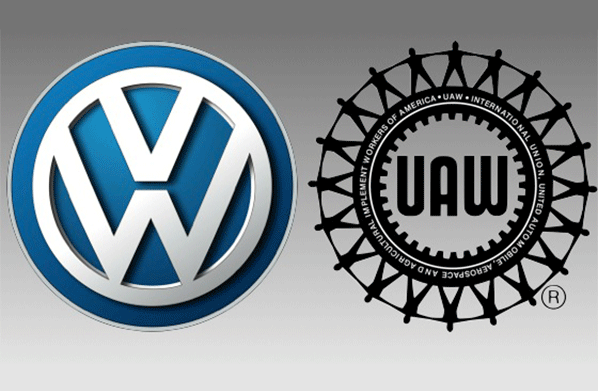The United Auto Workers Union, which has lost 75 percent of its membership since 1979 and contributed heavily to the near-death experiences of automobile manufactures that the taxpayer bailed out in Detroit, won’t take no for an answer. Like a vampire, the UAW must have fresh blood to continue to live.
The union is demanding, as a Wall Street Journal editorial puts it, a mulligan on the vote by Volkswagen workers rejecting the UAW by 712 to 636 votes at a Chattanooga factory. But there is a second development regarding the possible unionization of the Chattanooga plant. Even if it isn’t forced to accept the UAW, the Chattanooga plant may end up with a European-style works council imposed upon it.
The workers councils in Germany enjoy a great deal of influence in setting policy, and after the Chattanooga vote, an employee representative at Volkswagen in German threatened to prevent the auto manufacturer from further expansion into the southern states in the U.S. unless these plants are willing to embrace a works council.
Reuters reported:
German workers enjoy considerable influence over company decisions under the legally enshrined "co-determination" principle which is anathema to many politicians in the U.S. who see organized labor as a threat to profits and job growth.
In Germany, a works council at a VW plant makes decisions about workplace issues and represents employees in disputes.
“I can imagine fairly well that another VW factory in the United States, provided that one more should still be set up there, does not necessarily have to be assigned to the south again," said Bernd Osterloh, head of VW's works council.
"If co-determination isn't guaranteed in the first place, we as workers will hardly be able to vote in favor" of potentially building another plant in the U.S. south, Osterloh, who is also on VW's supervisory board, said.
It is unclear how a German works council would operate under U.S. law and if such a council would hamstring the plant in the same way that the UAW likely would.
But the incursion of the European-style unions certainly creates a novel situation: a German company has every right to decide where to build its plants, but U.S. workers also traditionally in right-to-work states have a right to decide whether they want to be unionized. The employees at the Chattanooga plant could be left with no choice in the matter and forced to embrace a union, either the UAW or a work council similar to the ones in Germany, however.
Meanwhile, the UAW is appealing the vote to the Obama National Labor Relations Board on the grounds of a highly unusual legal theory: according to the UAW, Tennessee politicians who opposed the union had no right to speak out against it.
The UAW regards the politicians’ campaign against the UAW as “intimidation.” The National Labor Relations Board might well buy this:
The union says intimidation by third parties should void the results based on the constitutionally shaky doctrine known as "laboratory conditions."
The NLRB invented this doctrine in the 1948 General Shoe case when it assumed responsibility to provide "a laboratory in which an experiment may be conducted, under conditions as nearly ideal as possible, to determine the uninhibited desires of the employees." The board ruled that, "When, in the rare extreme case, the standards drop too low" then "the experiment must be conducted over again."
The UAW had unfettered freedom to lobby Chattanooga workers for two years, but opponents of the union also had the right to campaign publicly against it. One of the UAW opponents was State Senator Bo Watson, who said that "additional incentives from the citizens of the state of Tennessee for expansion or otherwise will have a very tough time passing the Tennessee Senate" if the UAW won. That, however, as the Wall Street Journal points out, is a statement of fact rather than intimidation.
Senator Bob Corker, a Republican, also made the union angry by stating that a vote to unionize could influence Volkswagen not to build more plants in the south. Since union-friendly Volkswagen disavowed Corker’s statement, it’s hard to see how it was a big factor in the union’s loss.
But the union may win with the NLRB:
The Obama-appointed majority on the NLRB is the most overtly partisan in memory, and its behavior—recall its anti- Boeing BA -2.72% assault for building planes in South Carolina—shows it will use any pretext to side with the union. It may give the UAW a mulligan even at the risk of losing again.
The larger NLRB—and UAW—goal may be to establish a precedent that political statements opposing a union election are enough to invalidate "laboratory conditions" and thus require a revote. That would deter politicians from speaking up in the future. This is bad labor law, and it violates the First Amendment, but modern union politics is all about using government power to overrule worker choice.
An expert on the automotive industry believes that the no-vote will give pro-union Volkswagen, which is struggling in the U.S., more flexibility than it would have with the UAW. The effects of a German-style worker council, imposed in a U.S. landscape, are more difficult to predict.
The only thing that is clear is that the wishes of the workers at the Chattanooga plant are unlikely to be the determining factor.
Weird–I thought unions were supposed to represent the workers.


